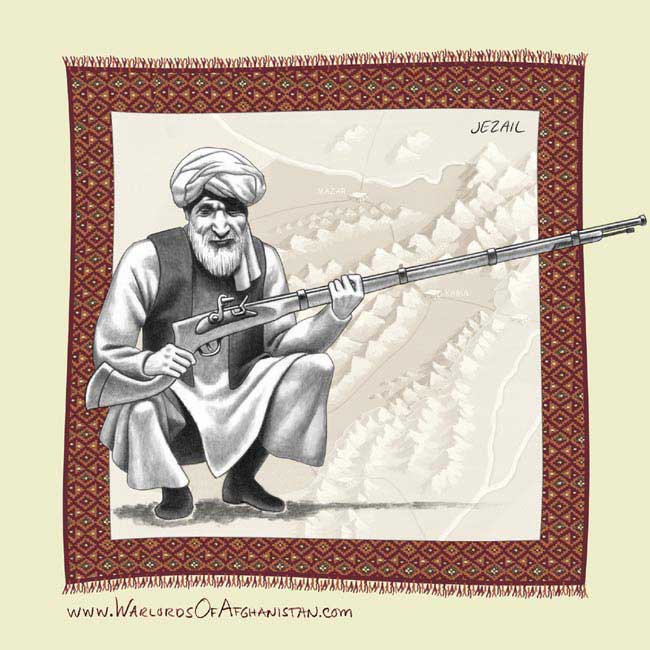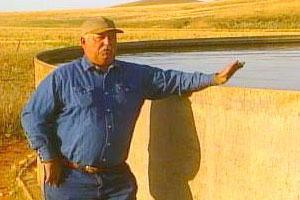One day, after a few hours of fighting in which the Taliban had not yet hit any Marines, a corporal from Second Platoon stood upright, exposing himself above the waist and looking over a wall as bullets flew high overhead. He didn’t flinch. “What’s everybody ducking for?” he said. He cupped his hand to his mouth and shouted an expletive-laden taunt at the Taliban gunmen shooting from concealment on the opposite side of a field. The editors would never allow the corporal’s words to be printed here. But they amounted to this: You guys can’t shoot.
*****
Thanks to Doug for bringing this to my attention. Man, did the Italian Carabinieri just show up the DynCorp police instructors or what? lol Training folks requires patience and a profound understanding of the fundamentals. Good on the Italians for correcting the issue. But it also highlights the importance of standardizing this contract, so you don’t have companies or even the military doing whatever they want.
I cut that one little piece of reportage out of this first article posted below, just to get the ball rolling for this post. Marksmanship is something contractors are teaching to Afghans, Iraqis, Ugandans, Nepalese, you name it, and there are so many issues that come up when trying to teach this life saving and essential skill to the troops. For this post, I will highlight the Afghan issues and present the six points that Mr. Chiver’s mentioned in his excellent reportage on this topic. I am not saying these apply to all forces being trained, but for Afghanistan, this is what has been identified. So with that said, let’s get started.
In a prior post, I mentioned the concept of the Jezailchis Scouts (JS). Or basically create a scout/sniper force in Afghanistan that would pride itself as being the premier Afghan tracking and killing/capture force. Something along the lines as the Selous Scouts. A force that all Afghans would look up to and highly respect. This force would be the go to guys for hunting humans up in the mountains, and they would have great utility (pseudo operations, sniper operations, scouting, snatch and grab, etc.). Marksmanship and the ability to track and survive on their own, would be the hallmarks of this crew. It would also draw from that fabled history of the Afghan being a good marksman, hence the Jezailchi reference in the name of the group.
But as the reader will find out, Afghans on both sides of the conflict, suck at marksmanship. Mr. Chivers boiled it down to the six areas that are contributing factors to poor marksmanship on the side of the Taliban (but could easily apply to Afghan Army or Police forces)
Here they are.
1. Limited knowledge of marksmanship fundamentals.
2. A frequent reliance on automatic fire from assault rifles.
3. The poor condition of many of those rifles.
4. Old and mismatched ammunition that is also in poor condition.
5. Widespread eye problems and uncorrected vision.
6. Difficulties faced by a scattered force in organizing quality training.
The second Chiver’s article also mentioned what happens when a enemy force can’t shoot–they adapt. In this case, AK 47’s were used to cause reactions in patrols. Meaning, if an ambushing force fires the weapons and the patrol of Marines runs to the closest protection that happens to be pre-rigged with IED’s, then that ambushing force could command detonate and kill the Marines that way. So the enemy knows it sucks when it comes to shooting, so they just use the weapon as a catalyst to get our forces into traps or to delay our forces. Nothing new, and this is a tactic used over and over again in the history of warfare.
But going back to the marksmanship thing, I personally think that this is a weakness that would should be exploiting. We exploit it by creating some good ol fashion kick ass Afghan shooters, coupled with Coalition snipers and marksmanship mentors. We also have the coalition bring in weapon systems that can reach out and touch someone, and has optics. I continue to read reports that this last part is happening, and that is good. We should be picking these guys off from across the canyons or at distances that the Taliban cannot engage at.
That brings up the other point of the article. The two weapons systems that the Taliban are able to actually hit people with, are the PKMs and sniper rifles (with trained snipers using them). The PKMs makes sense, because a machine gunner can adjust fire easily, and concentrate fire better and at distance. It is the only weapon system that suits the capabilities and limitations of the kind of fighters using it. (please refer to the six points up top)
Now for the Afghan Army and Police, there are a few things we could do to bring them up to speed quickly. Giving them eyeglasses would be a start. lol Also, some accountability must be shown for the quality and functionality of all weapons and ammo issued.
Some ideas off the top of my head would be to modify the AK or the issued M-16 to only shoot semi-auto. It would force these guys to shoot one shot at a time, as opposed to the spray and pray technique. The other thing that could be done, is to put reflex sites on these weapons–stuff that is AK tough and does not require batteries. That way, you have a weapon that is Fisher Price simple for the Afghans to use, and they won’t be able to use it like a fire hose. If the weapon is better suited to the user, then the other aspect of teaching marksmanship fundamentals will go a lot easier. There should also be an effort to cull the best of the best from these groups, and get them in marksmanship focused group like the JS or whatever special forces that has been created.
Finally, marksmanship could be promoted in Afghan society once again. Competitions could be held, cash or goats could be issued as prizes, and competent Afghan shooters could be identified and approached for recruitment into the JS or Army. Hunters could be rewarded for meat collected, or hide or whatever, and they could be approached as well. Hunters throughout the world are all the same, and I am sure there are plenty in Afghanistan who are very good at it and enjoy the sport. You just have to develop an outlet to attract these guys. Even in the Army and Police, I am sure there are those who could really shine with marksmanship if they had an outlet for such a thing. Especially if marksmanship billets paid more–you would definitely increase the interest in such a thing. Stuff to think about, and thanks to Mr. Chivers for some excellent information on the matter. –Matt
Edit: 04/11/2020 Here is the next article Mr. Chivers wrote about Afghan Army and Police marksmanship. Awesome.
——————————————————————

The Gang That Couldn’t Shoot Straight
Six billion dollars later, the Afghan National Police can’t begin to do their jobs right—never mind relieve American forces.
By T. Christian Miller, Mark Hosenball, and Ron Moreau
Mar 29, 2010
(Only a portion of the article is posted, and follow the link to read the entire thing)
At Kabul’s police training center, a team of 35 Italian carabinieri recently arrived to supplement DynCorp’s efforts. Before the Italians showed up at the end of January for a one-year tour, the recruits were posting miserable scores on the firing range. But the Italians soon discovered that poor marksmanship wasn’t the only reason: the sights of the AK-47 and M-16 rifles the recruits were using were badly out of line. “We zeroed all their weapons,” says Lt. Rolando Tommasini. “It’s a very important thing, but no one had done this in the past. I don’t know why.”
The Italians also had a different way of teaching the recruits to shoot. DynCorp’s instructors started their firearms training with 20-round clips at 50 meters; the recruits couldn’t be sure at first if they were even hitting the target. Instead the carabinieri started them off with just three bullets each and a target only seven meters away. The recruits would shoot, check the target, and be issued three more rounds. When they began gaining confidence, the distance was gradually increased to 15, then 30, and then 50 meters. On a recent day on the firing range only one of 73 recruits failed the shooting test. The Italians say that’s a huge improvement…..
Story here.
—————————————————————–
Afghan Marksmen — Forget the Fables
By C.J. CHIVERS
March 26, 2010
The recent Marine operations in and near Marja brought into sharp relief a fact that contradicts much of what people think they know about the Afghan war. It is this: Forget the fables. The current ranks of Afghan fighters are crowded with poor marksmen.
This simple statement is at odds with an oft-repeated legend of modern conflict, in which Afghan men are described, in clichés and accounts from yesteryear, as natural gunmen and accomplished shots. Everyone who has even faintly followed the history of war in Central Asia has heard the tales of Afghan men whose familiarity with firearms is such a part of their life experience that they can pick up most any weapon and immediately put it to effective work. The most exaggerated accounts are cartoonish, including tales of Afghan riflemen whose bullets can strike a lone sapling (I’ve even heard “blade of grass”) a hilltop away.Without getting into an argument with the ghost of Rudyard Kipling, who was one of the early voices popularizing the wonders of Afghan riflery, an update is in order. This is because the sum of these descriptions does not match what is commonly observed in firefights today. These days, the opposite is more often the case. Poor marksmanship, even abysmally poor marksmanship, is a consistent trait among Afghan men. The description applies to Taliban and Afghan government units alike.
Over the years that Tyler Hicks and I have worked in Afghanistan’s remote and hostile corners, we have been alongside Afghan, American and European infantrymen in many firefights and ambushes. These fights have involved a wide set of tactical circumstances, ranges, elevations, and light and weather conditions. Some skirmishes were brief and simple. Others were long and complex, involving as many as a few hundred fighters on both sides. One result has been consistent. We have almost always observed that a large proportion of Afghan fire, both incoming and outgoing, is undisciplined and errant, often wildly so. Afghans, like most anyone else with a modicum of exposure to infantry weapons, might be able to figure out how to make any firearm fire. But hitting what they are aiming at, assuming they are aiming at all? That’s another matter.

